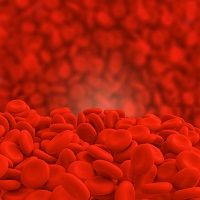GI Bleeding: Patients with Atrial Fibrillation Still Need Anticoagulants
Resuming treatment of oral anticoagulation in patients with atrial fibrillation who experienced gastrointestinal bleeding led to a higher risk of more bleeding, but better outcomes overall, Danish researchers found.

A recent study by Laila Staerk, research fellow in the Department of Cardiology at Copenhagen University Hospital in Denmark and colleagues has shown that resuming treatment of oral anticoagulation in patients with atrial fibrillation who experienced gastrointestinal bleeding led to a higher risk of more bleeding, but better outcomes overall. The study results were published in the BMJ.
The researchers began their work with the question, “What are the risks of all cause mortality, thromboembolism, major bleeding, and recurrent gastrointestinal bleeding associated with restarting antithrombotic treatment after gastrointestinal bleeding in patients with atrial fibrillation?” They included patients who were between the ages of 30 and 100, and who had atrial fibrillation and had “experienced gastrointestinal bleeding while receiving single or combined antithrombotic treatment with a vitamin K antagonist, dabigatran, rivaroxaban, aspirin, clopidogrel, prasugrel, or ticagrelor.” There were 3409 patient records considered for this study.
A 90-days blanking period following discharge from the hospital was established, so “all patients who died or experienced a thromboembolic event, major bleeding, or recurrent gastrointestinal bleeding in the 90 days blanking period were excluded.” The remaining patients were divided into groups depending on whether they were being treated with a single treatment oral anticoagulation, a single treatment antiplatelet agent, dual or triple treatment with oral anticoagulation, aspirin, or an adenosine diphosphate receptor antagonist.